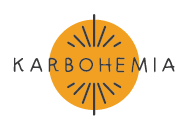By Jesse Kornbluth
Oct 09, 2013
“Life is meals,” James and Kay Salter write in their book about food and friends, and I agree. Not so much for what was served and how it was cooked, but who was there and what was said — really, how very alive I felt during those meals.
We recently moved from the richest zip code on New York’s East Side — this rich: at Christmas, we had mail delivery on Sunday — to live on the West Side in the shadow of Columbia University. The easiest way to explain the difference is the food. When we ordered Chinese takeout on the East Side, it was tame; over here, they don’t stint on the heat. The spice makes these Chinese dinners vivid — how very alive we feel.
Reading Karen Karbo has the same effect. She’s wide awake; not only is every fact about her ostensible subject accessible to her, but so is every thought those facts inspire and every moment of her own experience. That kind of writing is invigorating. And fun — Karen Karbo is fun, the person at the party you want to sit near because she’s going to knock back a few drinks and tell terrific stories.
She did this in The Gospel According to Coco Chanel: Life Lessons from the World’s Most Elegant Woman and How Georgia Became O’Keeffe: Lessons on the Art of Living. She may be in awe of those women, but that’s not why she writes about them; she wants to unearth their secret wisdom. When she does, she bluntly shares. Her take on Chanel’s philosophy of life: “Cut to the chase, don’t waste time doing stuff that seems essential to your life and business just because other people do it.” And O’Keefe’s: “The greatest aphrodisiac is vitality.”
Karen Karbo grew up 15 miles from Julia Child’s childhood home in Southern California. She knows what it means “for her to go to France in her 30s as a Californian and hurl herself into French culture.” What’s more remarkable about that reinvention is something Karbo knows and other writers forget to note: “She was pretty average. When she was in school, she was an average student — average to bad, actually, because the girl did love to party. Her philosophy at Smith was, ‘less study, more moonshine.’ It wasn’t like she had this fantastic aptitude for cooking; she just had a huge passion for cooking, and she was an enormous workaholic.”
Karbo’s title is literal — the book is structured around ten of Julia’s rules. The first is really the most important: total commitment: “Julia was a devotee of anything that was risky, difficult, and had the potential for catastrophe.” Karbo amplifies:
Part of living with abandon is giving oneself over to one’s circumstances without any expectation that things are going to be to our liking anytime soon. We can hope that things will improve, but it shouldn’t prevent us from doing what we’ve set out to do. Julia had an astonishing capacity to be content with what was in front of her, whether it be a cooking school run on spit and a string or a less than perfect hunk of meat. She made do and moved on and rarely regretted it.
But enough of the high tone — “Julia Child Rules” is a blast. “If we could just have the kitchen and the bedroom, that would be all we need.” When Julia said that, she was 89! She loved the hot dogs at Costco. She never served hors d’oeuvres; her idea of pre-meal kibbles was Pepperidge Farm goldfish.
There has to be a scene from Julia’s legendary television show. Karbo chooses the one that has her preparing French onion soup. Julia chops vegetables, puts the casserole in the oven — and removes a blackened casserole. It’s a disaster. Burned. But Julia proclaims it table-ready: “She reassures us that this is a sensational meal, and then comes the moment that seals the deal, that causes us to bond with the strange cooking teacher now and forever: She leans toward the camera and confides, ‘When you’ve added all those French touches, who’s going to know?’”
Karen Karbo describes herself as an average home cook. Who cares, as long as she keeps serving up these tasty, life-affirming five-star books.








